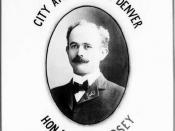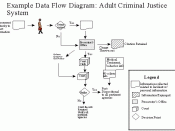The Historical Development of the Juvenile Justice System
The Juvenile Justice System was a creation of the Progressive Era reformist. Prior to this time there was little consideration for children as needing or deserving different treatment than adults. To tell the truth there was relatively no separation of adults and children up to this point in time. In retrospect it could be said that the creation of a separate stage in the life of growing people led to the creation of a separate justice system. So the creation of adolescence and its' separation from the rest of society also gave rise to the Juvenile Justice System. This section of the paper looks into this development.
As late as the eighteenth century children regularly participated in activities that would now be considered adult in nature (Empey, 1976). This included but was not limited to engaging in sexual activity at an early age, learning and using obscene language, drinking alcohol in taverns if not at home, working and learning trades and fighting in wars (Empey, 1976).
In the United States there was little difference than the rest of western society. Colonial reformist saw deviant behavior as something to be concerned about but it was considered a critical social problem or a breakdown in the social organization (Empey, 1976). Basically they saw humans as inherently weak and drew a parallel between sin and crime and they treated either equally with the same harsh, usually public, punishments. But with the newly won freedom of the United States came a new perspective on things. With people's freedoms being based on the Constitution and the Bill of Rights, which had their foundations in the Enlightenment Eras' philosophies, there came many changes in the way people saw things (Empey, 1976). People were no longer seen as inherently...


